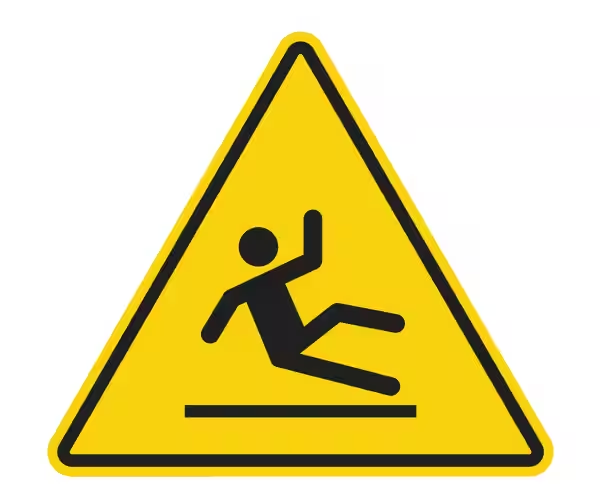How to Fall Safely

Dreamstime
By Lynn C. Allison From Newsmax
More than 14 million older adults in the United States fall each year, according to the Centers for Disease Control and Prevention (CDC). Unfortunately, accidental falls are the primary cause of injury and deaths from injury for older adults. Learning the right way to take a tumble can be lifesaving.
While there are many reasons why we fall, learning how to cushion the blow can help reduce the chances of injury.
Here are some tips:
• Try to land on something soft. Dr. Elizabeth Eckstrom, chief of geriatrics at the Oregon Health & Science University Hospital tells SELF that if you can’t land on something cushiony, land on your butt. Don’t panic and get rigid, and don’t stick your arms out to break the fall. Chances are you’ll break a wrist or your arm instead. If you fall forward, rotate your body so you land on your bottom, not your hips, which can suffer fractures from falls because they have less fat protecting the bone.
• Relax and roll. Try to use gravity to get you closer to the ground when falling, which means relaxing your body rather than resisting the fall. If you are falling forward, rotate your shoulders to avoid face-planting and then roll along your spine. If you fall backwards, stick your butt out and try to emulate a reverse somersault to lessen the impact. Tuck into a fetal position if you fall sideways.
• Tuck your chin. You want to avoid the whiplash effect, warns Jacob Sosnoff, a professor of physical therapy at the University of Kansas who has researched the correct way to reduce falling risks. Thrust your chin down to your chest to avoid serious injuries and trauma that can occur by hitting your head.
If you do suffer a fall, be vigilant about signs and symptoms of mild to severe head injuries. According to the Mayo Clinic, common symptoms after a mild traumatic brain injury or concussion are headache, confusion, and loss of memory, known as amnesia. The amnesia usually involves forgetting the event that caused the concussion.
Physical symptoms of a concussion may include:
• Headache.
• Ringing in the ears.
• Nausea.
• Vomiting.
• Fatigue or drowsiness.
• Blurry vision.
More severe head injuries can cause loss of consciousness, slurred speech and one-sided weakness. Call 911 or visit the nearest hospital if you have these symptoms after injury to be safe, says the CDC.
Falls can be prevented by staying physically active, practicing balance exercises, such as standing on one leg for 30 seconds or more, and making sure your home environment is safe by removing throw rugs and decluttering your hallways. Address hearing loss as research shows people with a hearing impairment are at higher risk for falls due to balance dysfunction. Take care of your mental health as depression is also associated with a greater chance of falling, says SELF.
Lynn C. Allison:
Lynn C. Allison, a Newsmax health reporter, is an award-winning medical journalist and author of more than 30 self-help books.
© 2024 NewsmaxHealth. All rights reserved.
For more on this story go to: NEWSMAX




